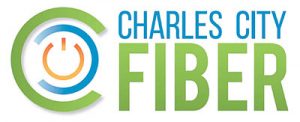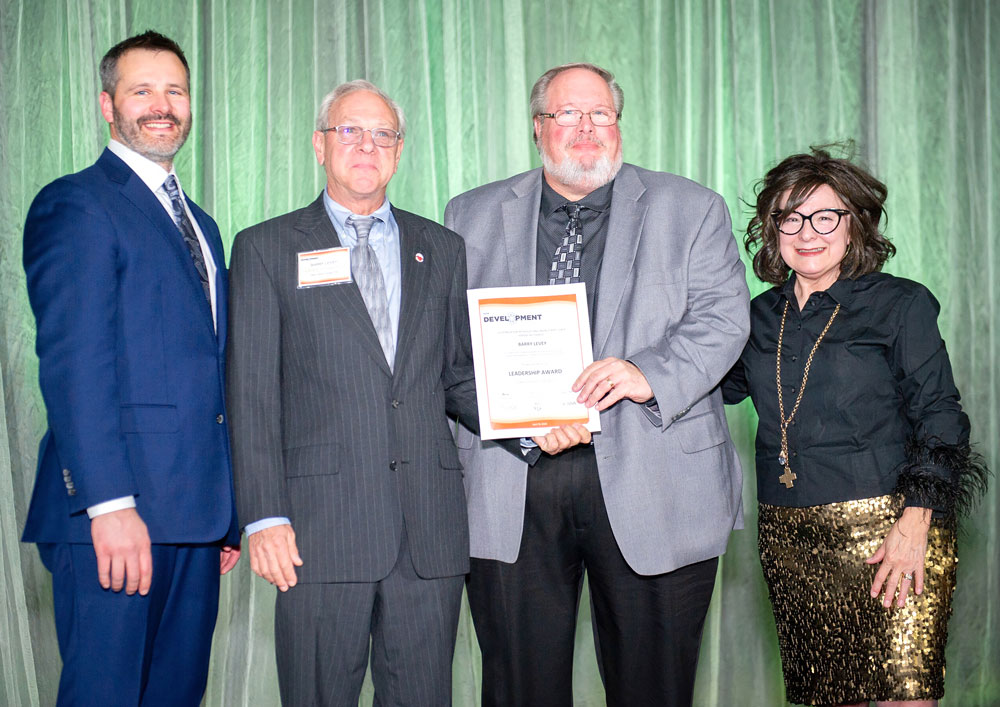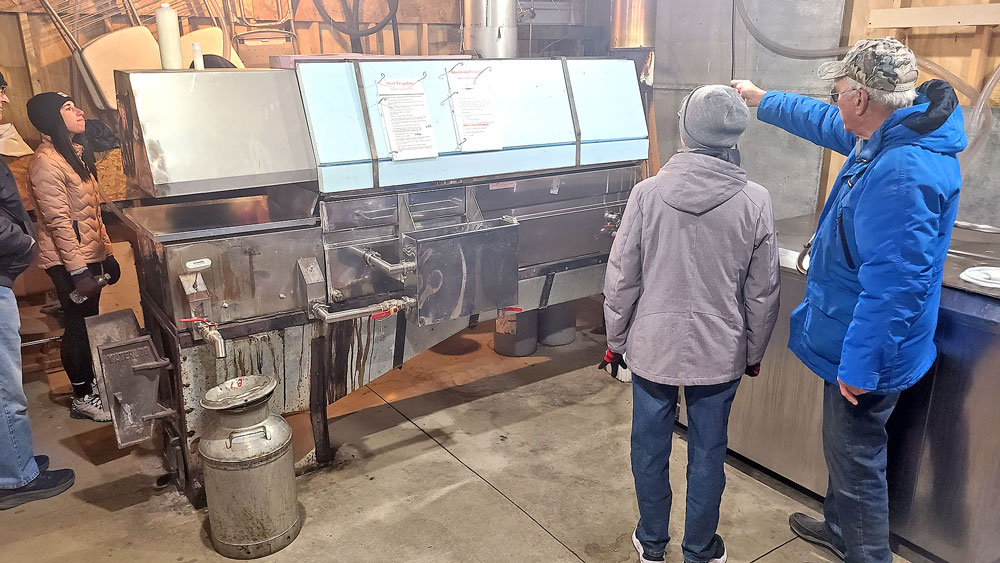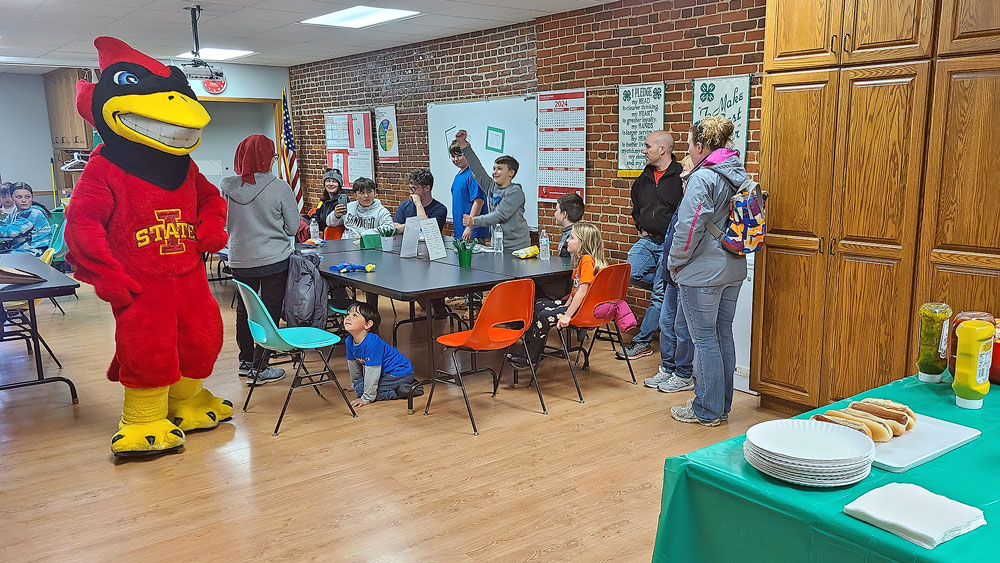Bond memorandum outlines Charles City Fiber funding, hoped to be settled next week
By Bob Steenson, bsteenson@charlescitypress.com
By this time next week, the Charles City Fiber broadband project may have signed a contract to install the fiber optic cable system main lines throughout the city, have made a job offer to a general manager to help guide the utility and have the funding lined up to make it all possible.
The first two items on that list will depend on the last one getting settled, expected at a meeting either next Tuesday or Thursday.

The Charles City Telecommunications Utility Board of Trustees held one of its shortest meetings ever this week, with the main item of business the approval of a massive 308-page document that will be used to market almost $22 million in revenue bonds.
The board and its host of consultants have spent months trying to figure out a way to finance the combination internet, television and telephone service project in a way that’s both attractive to potential investors and able to pay for itself with the revenue expected from the sale of those services.
That work — held largely in closed meetings — resulted in the bond offering memorandum approved this week.
“It’s really a sales piece,” City Administrator Steve Diers said about the document that includes information on the proposed project, the community, projected costs and revenues, timelines, potential bond payback schedules and enough financial and legal information to hopefully answer the questions of anyone interested in investing in Charles City Fiber.
“This is everything we know about the plans for this utility,” Diers said. “Here’s how we plan to structure the bonds, structure the debt. Here’s the business plan. Here’s the review from the CPA firm that reviewed the business plan and the numbers.
“It’s basically the document that Michael Maloney and Paul Donna will be using as they go out to market and sell those bonds to investors, and say, ‘Hey, here’s what we’re selling and here’s the lowdown behind it,’” Diers said.
Maloney and Donna are financial consultants who have been working with the telecom board and other consultants to put together the financing package.
The bonds are proposed to be sold in three series, two series of communications revenue bonds of $7.01 million and $11.83 million, totaling $18.84 million, and one series of taxable communications revenue bonds for $3 million.
“We’re right at the $22 million limit” that the board of trustees had approved in June, Diers said.
“That amount’s a little bit higher than we talked about before, but that’s because we’ve got one shot to borrow funds here, and we wanted to make sure we have enough, so we put additional contingencies on different aspects of the project to make sure it was covered,” he said.
“Any additional funds that we won’t need immediately for equipment, installation or what have you, will go into the required reserves and sinking and surplus funds that we have to service. If nothing else, we’re getting a head start on the money we need to have in the bank,” Diers said.
The capital part of the project is expected to be somewhere in that $14 million to $15 million range, Diers said. That includes all the construction work and materials needed to install the “outside plant” — the main fiber lines and other equipment throughout the city — and to remodel the data center and install all the equipment and software needed to run, service and market the system.
The telecom board has already bid the outside plant, in June, and the likely successful bid, by ADB Utility Contractors, was for $6.36 million, more than $740,000 below the estimated cost. The board has been waiting to sign that contract until financing is in place.
The other $3 million revenue bond series is for startup costs — to pay wages, utilities, fees and other expenses of the broadband utility before it starts bringing in enough revenue to cover all those costs.
The broadband utility also has to repay the city of Charles City $1.2 million that the City Council approved loaning to the board of trustees to plan and develop the project. Most of that money has gone to purchase the former City Tap building that will be used as the data center and business offices, and for design, engineering and consulting fees.
One thing that isn’t in the bond proposal is the possibility of partnerships that will reduce costs, Diers said. For example, the board is looking at working with other companies on the transport legs of the fiber optic system that will connect Charles City with Mason City in the west and New Hampton in the east.
Other organizations such as MidAmerican Energy that want to run fiber from Mason City to Charles City have expressed interest in working together on that transport leg.
Bringing internet service into Charles City from both the east and the west is intended to provide redundancy to maintain service in case either line goes down.
The bond proposal shows Charles City Fiber being in the red, with more costs than revenues for at least the first two years, in fiscal year 2021 and fiscal year 2022, but projects that by fiscal year 2023 it will have enough subscribers and be earning enough revenue to pay all costs and debt service.
The bonds are based on a 25-year maturity, and when principal and interest are included over that time period the total bond cost is $36.6 million, but those projections are also based on 4.5%, 4.75% and 5% interest rates, and the actual bond coupon rates are hoped to be significantly lower than that.
Rates in the bond market are at a low period now, the financial consultants have said.
“From a selling bonds standpoint it’s a good time to be doing it,” Diers said.
The bond memorandum also makes a point of listing the risks of investing in the utility.
Risks identified in seven pages of details include potential construction problems and cost overruns, competition from existing service providers, potential advancements in other forms of technology, changing economic conditions, unforeseen problems with running the utility, natural disaster, environmental protection costs and regulations, changes in legislation or tax laws, cybersecurity and even COVID-19.
“We want to be forthright,” Diers said. “Nothing is guaranteed. We’ve done a lot of studies and a lot of review and consideration, but this is something that’s brand new. It has zero customers, and we’re starting from scratch.
“It also reiterates that nothing is backed up by city taxes or anything like that, either. It’s a revenue bond,” Diers said.
Whether next week’s telecom board meeting takes place on Tuesday or Thursday depends on how quickly Mahoney and Paul can line up the investors, Diers said.









Social Share